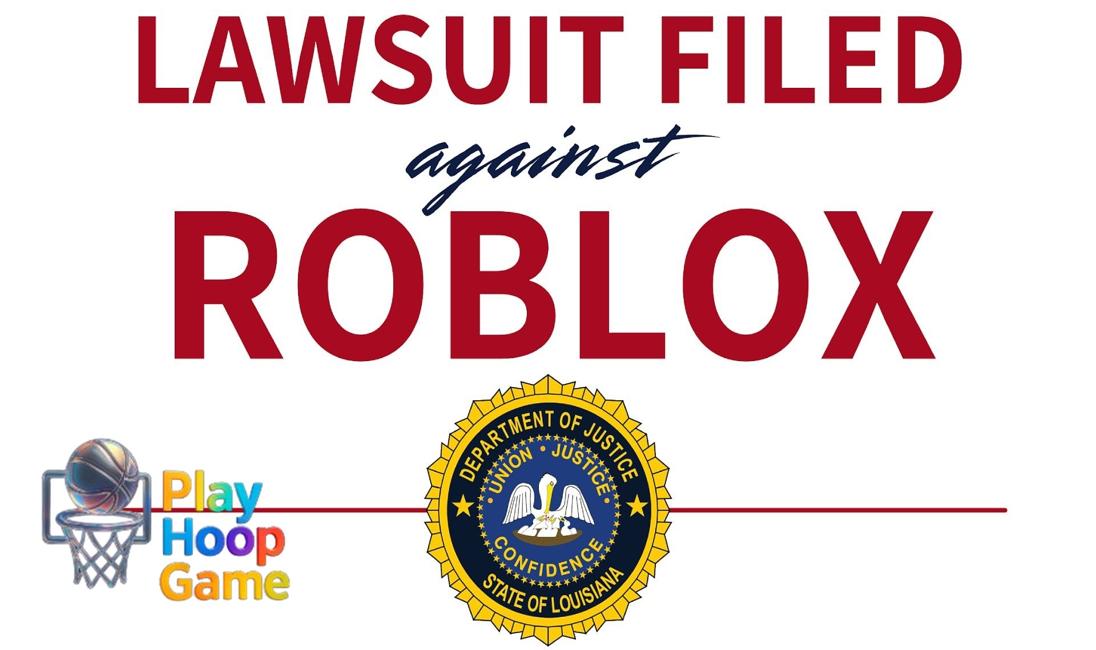I’ve got a confession to make. I used to think of Roblox as just another game. You know, a slightly clunkier, blockier version of Minecraft that my nephew would sink hours into, emerging only for snacks and to tell me about some game-within-a-game called "Adopt Me!" or "Brookhaven." It seemed harmless enough. A digital sandbox.
I was wrong. So, so wrong.
Roblox isn’t a game. It’s a universe. A platform. It's a social network, a development engine, and a marketplace with its own booming economy all rolled into one. And when anything gets that big, attracting over 70 million daily users (that’s more than the population of the UK, by the way), it stops being just a toy. It becomes infrastructure. It becomes a cultural force. And, inevitably, it becomes a target.
And now, the lawyers have arrived.
So, What’s All the Fuss About in the Bayou?
Let’s get the big headline out of the way: Roblox is being sued by the state of Louisiana. Or, more accurately, Louisiana’s Attorney General is leading a multistate investigation that’s almost certainly going to end in a massive lawsuit. But this isn't some simple slip-and-fall case. This is a battle over the very nature of digital play and commerce in the 21st century.
The core of the complaint, when you strip away the legalese, is pretty simple. The state argues that Roblox uses manipulative techniques, or "dark patterns," to coax kids into spending money. A lot of money.
Think about it this way. In the old days (and god, I feel old saying this), you bought a video game. That was it. You paid your $50 for the cartridge, and you owned the full experience. Roblox is free to play, which sounds great. But the entire platform is built around its virtual currency, Robux. Want a cool outfit for your avatar? Robux. Want a special power-up in your favorite game? Robux. Want to access exclusive areas? You guessed it. Robux.
The state's argument is that the line between playing a game and being in a casino has gotten dangerously blurry. They’re looking at the pop-ups, the limited-time offers, the social pressure to have the "coolest" virtual gear. The frustrating thing is, they have a point. The system is designed to be a frictionless, constant temptation to spend, aimed squarely at a demographic that, frankly, doesn’t have a fully developed sense of impulse control.
Why This Lawsuit Against Roblox Is A Bigger Deal Than You Think
But why Louisiana? Why now?
This isn’t just one state getting antsy. This is a sign of a much larger reckoning. For years, the internet has been the Wild West, and gaming platforms have been the wildest saloons in town. They built their empires on new business models that regulators and lawmakers are only just now beginning to understand.
The whole affair feels less like a straightforward legal challenge and more like a cultural moment, a clash between the generation that grew up with joysticks tethered to a console and the one that socializes, creates, and even earns a living in a blocky, user-generated universe. The passion these players have for their digital worlds is real and intense; just look at how Umusume fans pay tribute to a virtual racehorse to see the depth of these connections.
Louisiana, along with a growing coalition of other states, is essentially trying to be the new sheriff. They're looking at these complex digital economies and asking a fundamental question: Are you a creative sandbox or a finely-tuned Skinner box designed to extract cash from children? I’ve got to admit, it’s a fascinating question.
Roblox will, of course, argue that it’s the former. They’ll point to the millions of young developers learning to code on their platform. They’ll highlight the positive social connections. They'll also point to the parental controls they offer. And they’re not entirely wrong, either. This isn't a simple case of good guys versus bad guys, which is what makes it so complicated and, honestly, so important.
Is This Just About Money, or a Fundamental Misunderstanding?
I keep coming back to this point because it’s crucial. I wonder how much of this is a generational divide.
When a lawmaker looks at a kid spending $10 on a virtual "pet" in Roblox, they might see a scam. A waste of money on something that isn't "real." But to that kid? That pet is a status symbol. It’s a companion in their digital world. It’s an expression of their identity in the place where they spend hours hanging out with their friends. Who is to say that’s less valid than spending $10 on a movie ticket or a comic book?
Actually, that’s not quite the right way to put it. The value is real to the user. The problem is the method of transaction. It's the psychological architecture built around that purchase that's under scrutiny. The lawsuit isn't really saying a virtual sword can't have value; it's saying the way you're being sold that virtual sword might be predatory.
It’s a subtle but massive distinction. And it’s a conversation we are long overdue to have, far beyond just Roblox. This applies to every app with an in-game currency, every "loot box," and every free-to-play game out there. They’re all watching this case. Very, very closely.
This whole situation is a far cry from the simple, straightforward fun of something like a fast-paced endless running game. The "metaverse," or whatever you want to call it, has introduced a level of economic and social complexity that our laws just weren't built for. And while you can find tons of other free games on sites like CrazyGames, few have the sheer scale and economic engine of Roblox.
This lawsuit is the sound of the real world trying to catch up. It’s going to be messy.
FAQs About the Roblox Lawsuit
So, is Roblox getting banned in Louisiana?
Almost certainly not. Let’s get that misconception out of the way. The goal of a lawsuit like this is rarely to ban a service outright. It's about forcing a change in business practices. Think bigger warning labels, stricter spending controls, more transparency, and probably a very, very large fine.
What is this lawsuit really about, then?
It’s about consumer protection, specifically for minors. The state is arguing that Roblox uses deceptive design and psychological tricks ("dark patterns") to encourage kids to spend money on Robux without fully understanding the real-world cost. It's about making the platform fairer and less manipulative.
My kid plays Roblox. Should I be worried?
Worried? Maybe not. Aware? Absolutely. This is a good wake-up call for parents to check in. Use the parental controls Roblox offers, set spending limits (or a zero-spending rule), and most importantly, talk to your kids about what they're doing on the platform and how online spending works.
Why are they picking on Roblox? Lots of games have in-app purchases.
True, but Roblox is in a league of its own. Its massive user base is primarily under 16, and its entire platform is built around a virtual economy. Its scale and demographic make it a prime target for regulators looking to set a precedent for the entire industry.
In the end, this isn't just about one company or one state. It’s a landmark moment. It’s the legal system finally logging into the metaverse and asking, "Okay, what are the rules here?" Roblox was just the first one to get a knock on the door.
It won’t be the last.

























